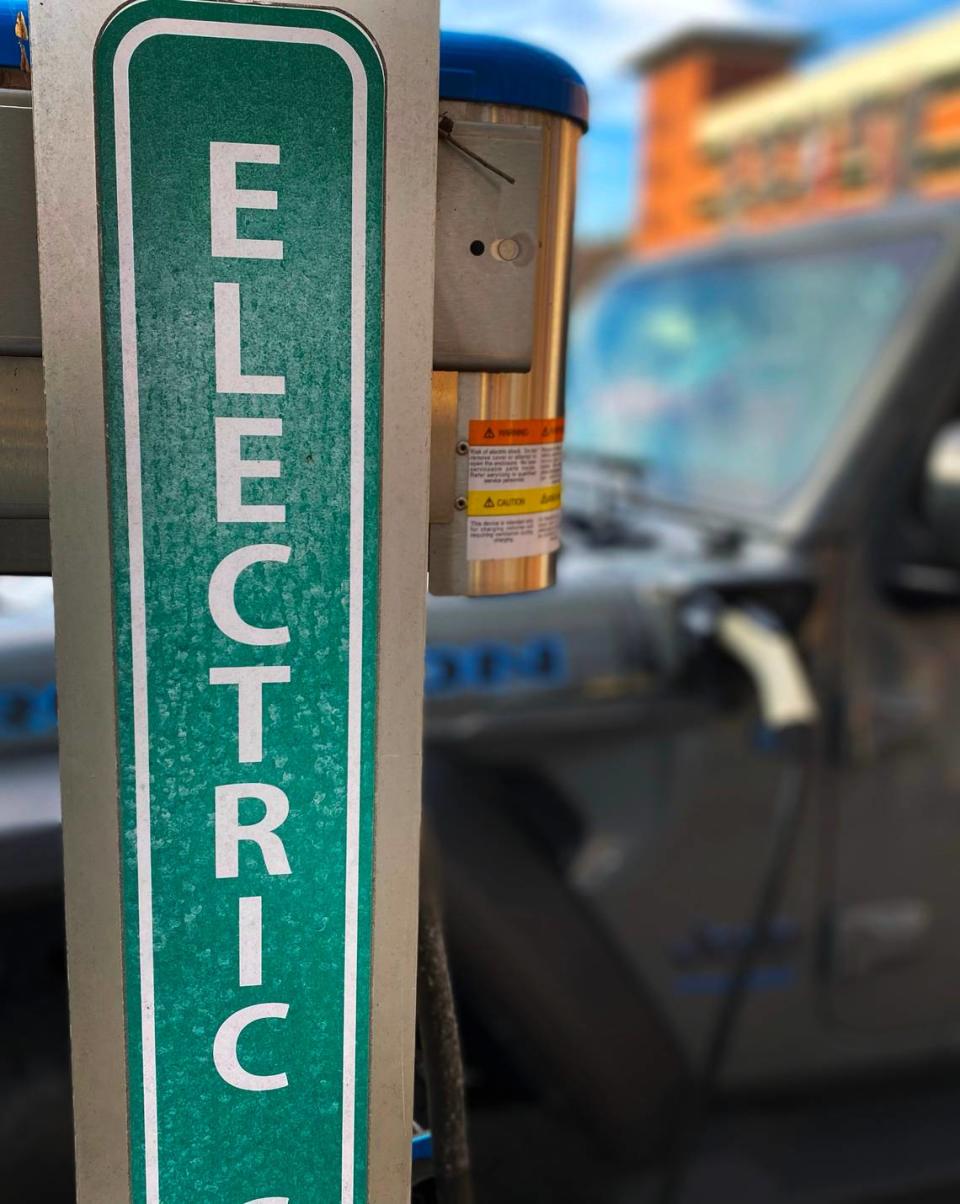Georgia postponed a tax on charging electric vehicles. What it means for residents
- Oops!Something went wrong.Please try again later.
When a Georgia car owner fills up a gas-powered vehicle, a small sales tax is included in the final bill, unbeknownst to the user.
In 2023, the state wanted to mirror this same concept for electric vehicles at public electric charging stations via Senate Bill 416.
But the charging stations, the state and the businesses that offer public charging are not ready for such a large infrastructure switch, prompting a delay in this requirement in the form of House Bill 516.
This week, Gov. Brian Kemp signed House Bill 516, which gives stakeholders like the Department of Agriculture, the entity overseeing the gas pump tax, more time to figure out how to implement a way to accurately measure and pay for this tax at all public EV charging stations.
The bill moved the implementation date from Jan. 1, 2025 to Jan. 1, 2026.
“It’s certainly a good thing that HB 516 has been signed,” said Mark Woodall, legislative chair of the Sierra Club. “Delaying the new motor fuel tax on electricity for cars is a good move. Level 2 chargers are not set up to handle the tax, we could lose hundreds of chargers in Georgia if a compromise is not worked out.”
The all Republican-sponsored Senate Bill 146 was written by state Rep. Rick Jasperse (R, District 11), who chairs the transportation committee.
“As chairman, I have to make sure that everybody is paying the same whether you are an EV, gas, or diesel vehicle,” he said. “A lot of stuff has been put out without regulation and a lot of the chargers aren’t working. We need to make sure we have an accurate and safe metering system and that is what the Department of Agriculture needs time to figure out.”
Don Francis, president of the Georgia chapter of the Electric Vehicle Association, is not confident that the state has an accurate grasp of the amount of public chargers there are, especially because business owners with chargers aren’t required to report them.
“The Department of Agriculture is stuck with trying to come up with a way to start certifying and have people report the utilization of energy at all of these public stations,” he said. “There are thousands of them. There is a database at the Department of Energy Alternative Fuel Datacenter which thinks there are 1,500-1,600 chargers (around 3,500 ports) in Georgia.”

Jasperse said the Department of Agriculture will develop a database and “pretty much knows where they all are because power companies know where they are.”
What is the cost impact?
The Electrification Coalition, a nonprofit that promotes policies to adopt plug-in EVs, believes the excise tax will make people less motivated to use EVs. They calculated the charging tax would cost up to $2.70 for a full charge, charged by the kilowatt-hours.
“The enactment of HB 516 will help preserve (EV) benefits and allow for further assessment of the new tax that we hope will reduce the burden on consumers and communities and ensure Georgia’s EV market remains on a positive trajectory,” Anne Blair, vice president of Electrification Coalition, said in a statement.
EV owners pay an annual registration fee of $214 in Georgia.
“The tax is 26 cents per gallon for gas, and one gallon of gas is equal to up to 11 kWh, so the tax would be roughly 26 cents per 11 kWh,” the Electrification Coalition said.
Francis did his own calculations and figures he will pay about a penny per mile for his Tesla. He said a 30 miles per gallon gas-powered vehicle does about 3 cents per gallon.
“If you look at it from that point of view it’s about the same, a penny per mile,” he said. “The problem is I’m paying $214 for the license fee.”
About 85% of charging is done at home, overnight, at single-family homes with a garage or off-street parking. But for those who live in apartments or condos without a garage, they “depend” on public charging, Francis said.
Francis worries that many businesses with free public charging have no idea that this is coming and he isn’t confident they will want to stick around.
Francis said businesses that want to continue charging “will have to take the charger out and buy a new charger” in order to fit these new demands, or they’ll quit charging because of the cost.
“This tax will hurt the growth of EV in Georgia,” he said.

